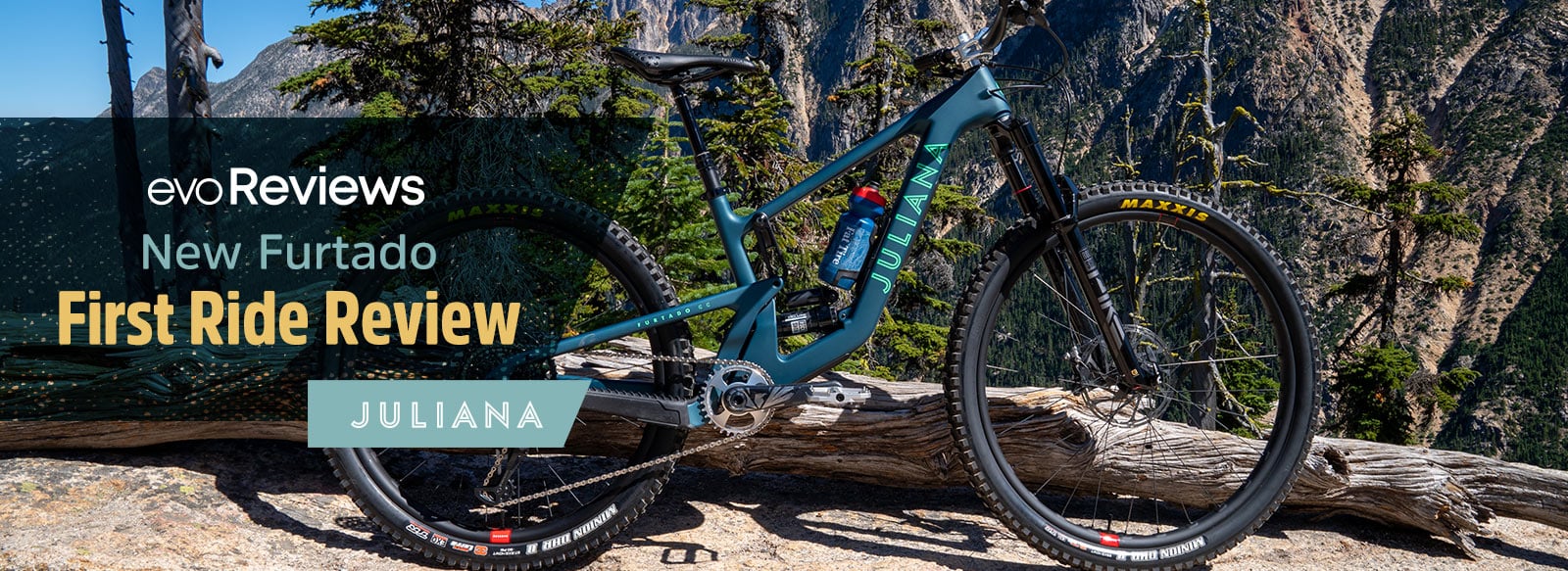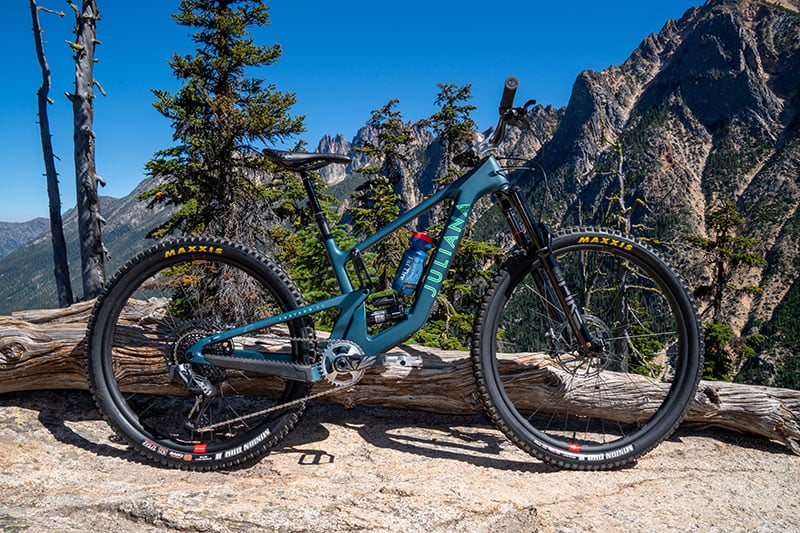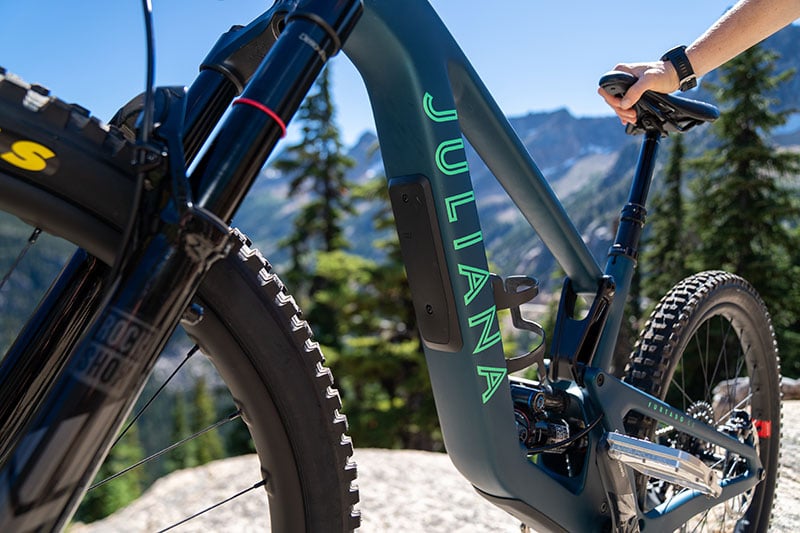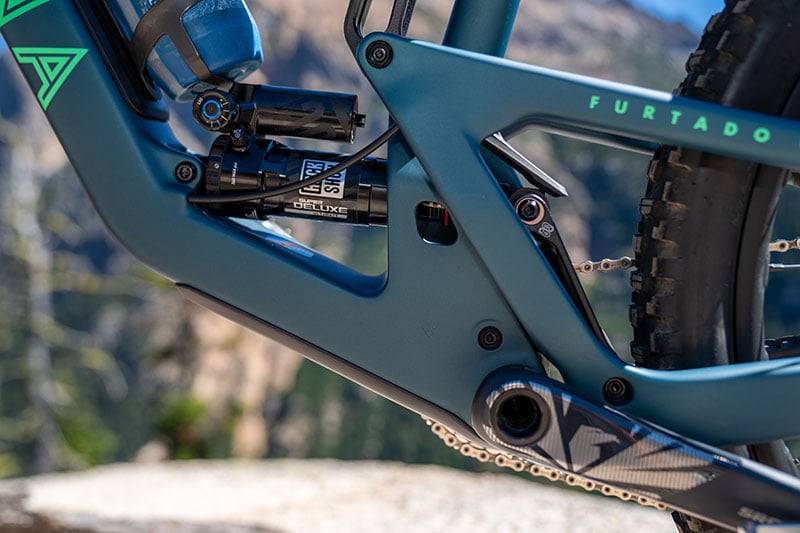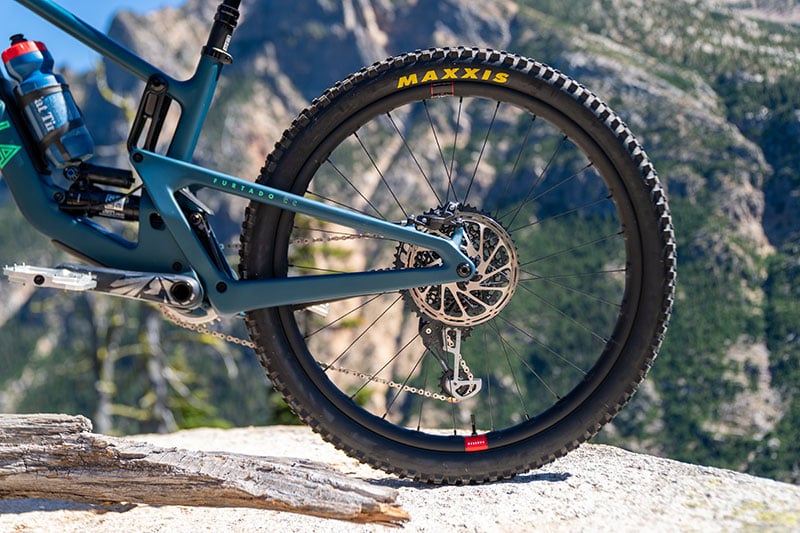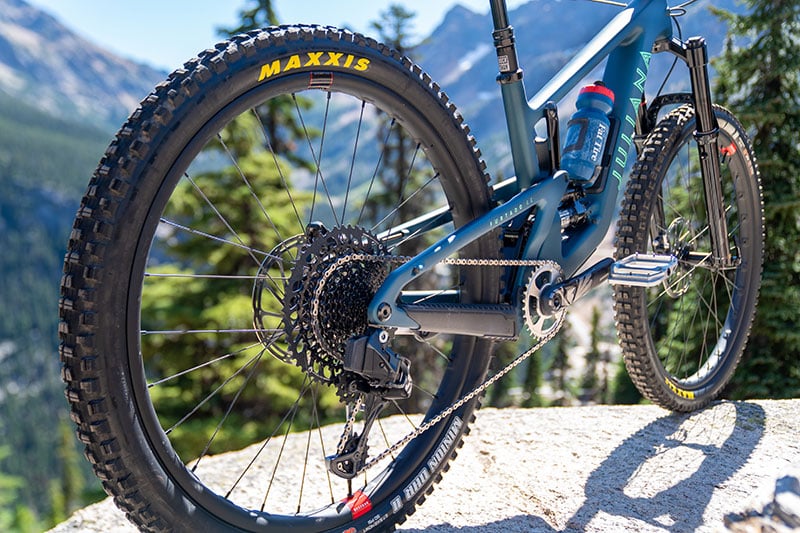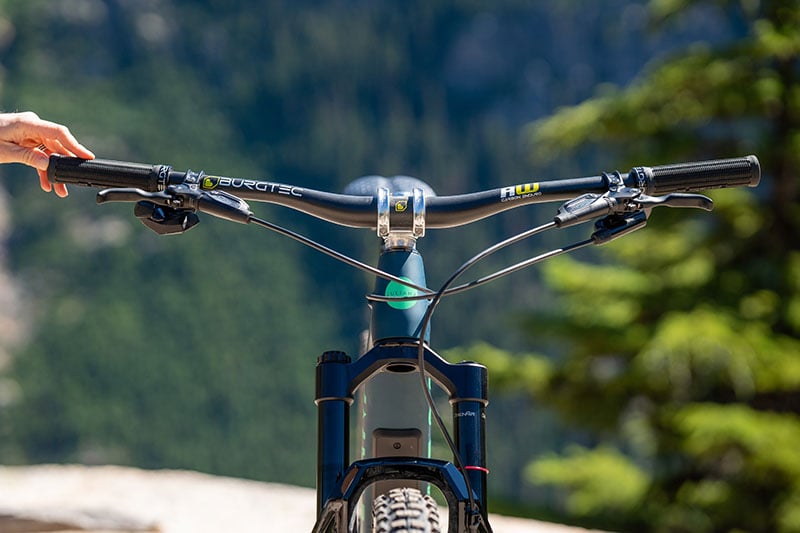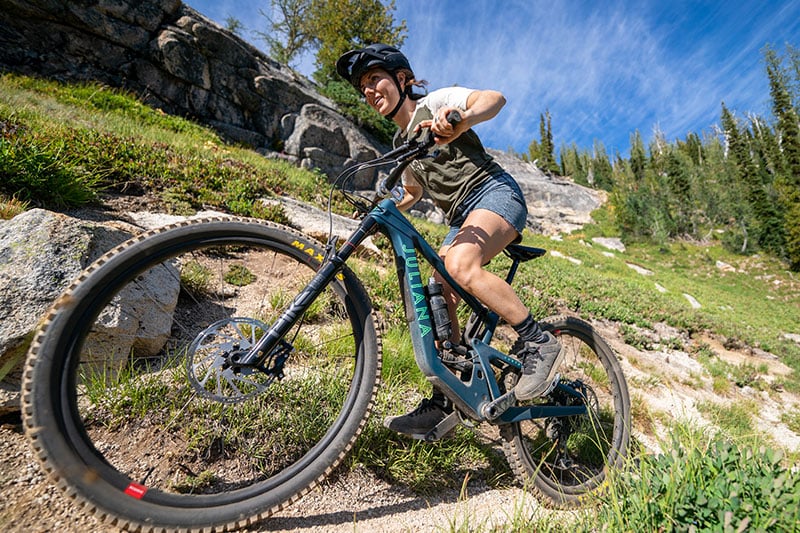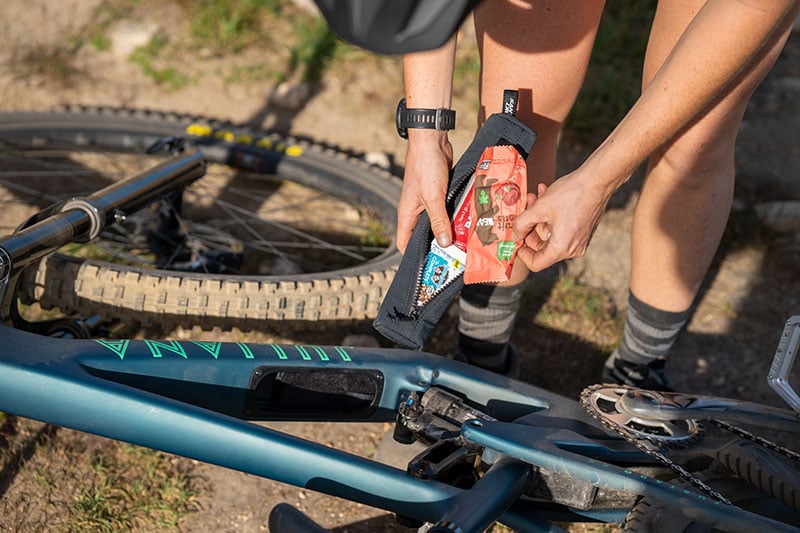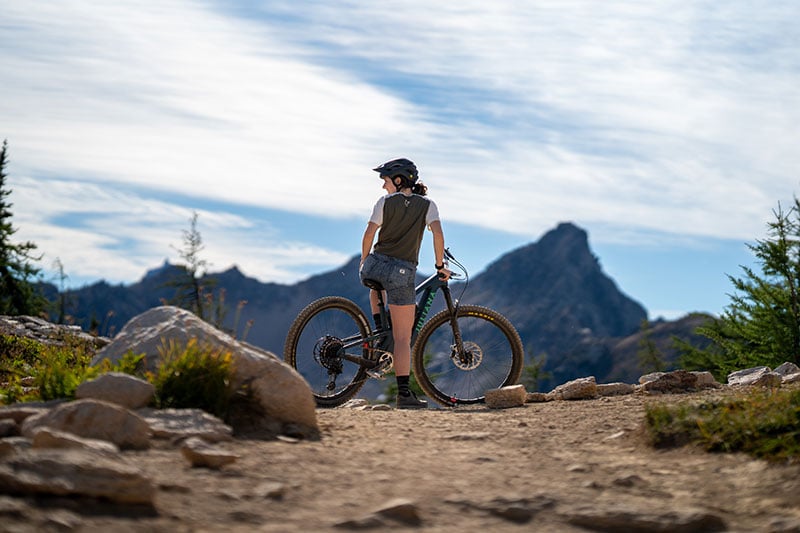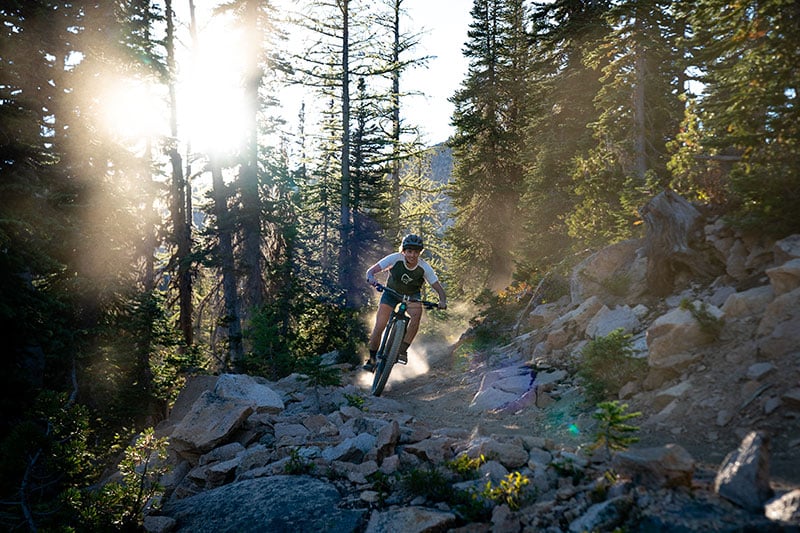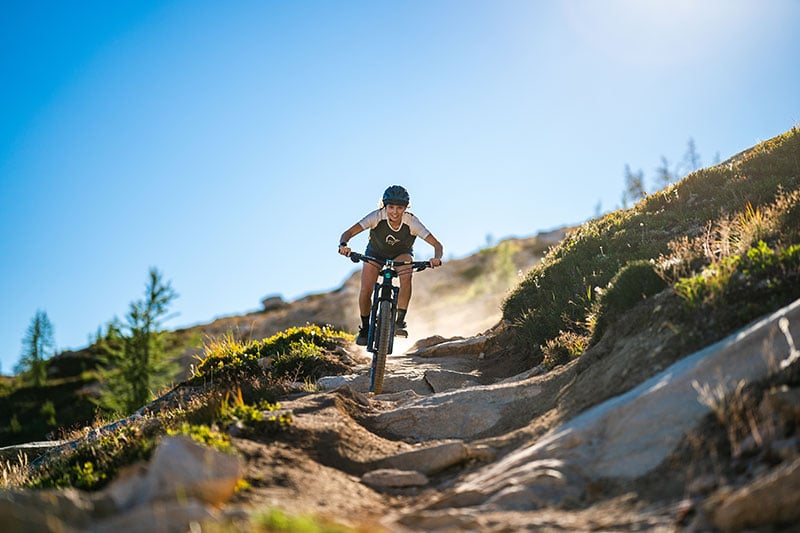2023 Juliana Furtado V5 Review
By: Delilah Cupp | September 7, 2022
With 130mm of VPP travel in the rear and 140mm up front, the new mixed wheel Furtado retains it’s snappy and nimble descending pizzaz favoring jump and slalom-esque flow trails, while increasing speed and capability on burlier terrain with increased traction via the 29’’ front trail.
The mixed wheel trend of the last few years has been met with both excitement and skepticism, and although I must admit I was a skeptic at first, I am fully convinced after hopping on this new generation of Furtado. After riding this bike on a rich variety of trails across the Pacific Northwest—from many laps on flow and tech trails in Squamish to cross-country and flow trails at Sun Mountain in the Methow Valley and even an alpine mission on Cutthroat Pass—I am fully on board the mixed wheel Furtado train. I didn’t feel like I was missing anything by losing the smaller front wheel, and dare I say my downhill confidence was most definitely increased with the addition of the 29’’ wheel.
The big wheel also gives this bike the climbing edge it was missing in previous generations, making it the perfect tool for long excursions featuring more climbing than anyone would prefer combined with the chunky descents characteristic to alpine riding.
Key Details
| 29" Front Wheel / 27.5" Rear Wheel | Glovebox™ Internal Storage |
| 130mm Lower Link Driven VPP Rear Travel / 140mm Fork | Size-specific Frame Stiffness |
| Chainstay Length and Seat Tube Angle Matched to Frame Size | Sag Window |
| Sizes: XS, S, M | Lifetime Warranty on Frame & Bearings |
Technical Details
Geometry
The most prominent shift from the Furtado as we’ve known it for years is the mixed wheel mashup, but the overall geometry has been subtly redesigned to accommodate a mixed wheel setup and maximize descending capability as well. At first, I was reluctant to accept the step away from the classic 27.5’’ slalom superstar and jump bike, but after a handful of rides on the V5 Furtado I can safely say that I do not miss the smaller front wheel. The 29’’ front wheel provides the traction and rollability to complement the 27.5’’ rear wheel’s agility, and together they deliver the best of both wheel sizes.
Although the chainstay length remains relatively short, it has been lengthened slightly from the previous generation of Furtado to balance rider weight distribution and maintain that cornering sweet spot that we’ve come to know and love throughout many generations of the Furtado.
The bottom bracket height remains where it’s always been on the Furtado—which is close to the ground (335mm in the low setting) for maximum cornering capability and confidence.
130mm of VPP travel in the rear shock, combined with the relatively short chainstay and low bottom bracket, lends this bike uniquely responsive handling capacity for a nimble, playful ride.
New to this generation of Furtado is a size-specific chainstay length and seat tube angle—both of which are matched to the frame size so that every size bike delivers the best of the balanced geometry the way it was intended. While the rear triangle remains the same across sizes, chain stay length is adjusted by moving the pivot bearings in the frame to push the rear triangle farther from the bottom bracket.
Similarly, the all-new size-specific layup stiffness (stiffness in the layup across the entire frame) creates a consistent feel across frame sizes, so all size riders get the same snappy responsiveness from the chassis. This means a small frame will be slightly less stiff than a medium—great news for those of us who are on the smaller end of qualifying for a small frame.
Suspension
Significantly less anti-squat than the previous generation Furtado enhances the bike’s descending feel at just a slight expense to uphill pedaling efficiency (which, in my opinion, is compensated for with the addition of the 29’’ front wheel). In as few words as possible, anti-squat is the measurement of how a bike’s suspension responds under acceleration forces. Anti-squat balances pedaling efficiency with suspension sensitivity, wherein reducing the anti-squat in this case increases the bike’s suspension sensitivity and reduces the effects of pedal kick, which is most noticeable when descending rough, chunky trail. Personally, I am happy to see descending feel prioritized over pedaling efficiency, especially on a lower-travel trail bike like the Furtado that already zips up the climbs.
Builds
The Furtado comes in five carbon build kits, in sizes XS-M. Starting at the R build with the C Carbon frame and working up to the X01 AXS RSV build with the CC Carbon frame, riders can choose between a variety of frame, wheel, and suspension options. There are no aluminum options for now.
All builds include a SRAM Eagle 12-speed drivetrain, and the Reverb Stealth dropper post is stocked on four of the five build kits.
The addition of a GX AXS build kit provides a more budget-friendly option for riders wanting an AXS drivetrain at the GX price point rather than X01, with other price reductions in the shock, fork, and wheel selections.
A personal favorite of mine, Industry Nine hubs are included on three of the five build kits.
I am the luckiest duck in the world getting to the ride the X01 AXS RSV build, with a few mods in the cockpit and chainring (I added Burgtec bars, grips, and a shiny silver headset to match my shiny silver 32T chainring and Penthouse Flat MK5 pedals. Bling Bling).
Features
I think it’s safe to say we’ve all been wishing we had internal frame storage ever since one of our riding buddies snagged a bike that adopted earlier renditions of it. Juliana is finally rolling out a Glovebox for the first time on new Furtado, secured by a tensioned aluminum latch that has exhibited zero rattle to date. Unique to Juliana/Santa Cruz, the Glovebox includes a Tube Purse and Tool Wallet to organize whatever essentials (or nonessentials) you want to carry inside. The Wallet even includes a zippered credit card (and ID) compartment so you can be prepared for whatever après you “accidentally” stumble upon after or during your ride. Although both fit in the Glovebox compartment together, I have taken to stuffing just the zippered Tube Purse with all the small things and shoving any larger items directly into the frame compartment.
Inside the downtube, the bike’s internal routing is kept separate from the compartment accessed through the Glovebox—which, beware, is cavernous enough to be concerned about losing stuff down there, further encouraging the use of the Tool Wallet and Tube Purse to keep small items secure.
For those of us who ride in jorts or shorts without zippered pockets, the Glovebox is a dream come true for safely stowing keys, cards, snack bars, windbreakers, an outfit change, and/or a bag of spaghetti.
Also new to the Furtado is a sag setup window. This small, thoughtful addition makes a surprisingly big impact in reducing the number of excuses I can spew to avoid staying on top of my suspension performance. Let’s be real, suspension setup is one of those things that we all know we should pay more attention to than we do. The sag setup window makes it just that much easier to take the time to dial in the pressure in your rear shock.
The flip chip has long been a staple of Juliana and Santa Cruz bikes. Found at the link where the shock mounts, the flip chip is used to adjust reach and slackness. The bike comes stock in low. Low setting makes it half a degree slacker with a slightly lower bottom bracket—the setting of choice for those who value aggressive descending, while the high setting is preferred by riders who are looking for the most pedaling efficiency.
Ride Impressions
Climbing / Uphill
I got the pleasure of pedaling this bike up a variety of climbing conditions—from chunky logging roads in Squamish to winding singletrack in the Methow to the loosest, chunkiest, sandiest, most technical climb I could wish for on Cutthroat Pass. Either I have somehow magically gotten better at technical climbing and pedaling speed, or this bike is a broomstick and I am a wizard. Either way, I was consistently surprised at my success in maintaining climbing speed and successfully making it up technical sections with ease.
Any sacrifice in uphill performance rendered by the reduction in anti-squat seemed to be countered by the larger front wheel.
My experience transitioning from the 27.5’’ Roubion to the new mixed wheel Roubion was the same—the mullet’s climbing superiority is stark, both in terms of speed and technical capability. However, the Furtado’s light weight advantage as compared to the Roubion is clear in any climbing scenario.
I have never been a shock flip-switcher to utilize climbing mode (especially on technical climbs, I find the suspension helps me retain traction), and my experience on this bike was no exception.
Rating: ☆☆☆☆☆
Descending / Downhill
Despite the larger front wheel, the over-the-bars, front-of-the-cockpit position I have come to know and love on the previous Furtado remained the same. This bike really puts you in an assertive position over the front, which provides nimble handling confidence and bike control to make every trail feel more playful. I felt total confidence entering chunky rock gardens and smooth flowing trail sections alike. In fact, I was surprised at first how well the bike rolled through challenging sections and delighted at my ability to pop and air over rocks and into gravely landings with reliable traction on the exit.
In Squamish, the bike exceled on flow trails and small jumps, and playfully conquered any line on steep, rooty trails. The relatively shorter travel made me want to pop over everything and weave my way through the path of least resistance. On flow and jumps, the back end of the bike has a particular affinity for coming around in the air and on the ground… Flicking the rear tire on side hits may just be my absolute favorite move on a bike and this rear end snaps around with delightful ease.
Overall Impression
This bike punches above its weight class for light and lower-travel trail bikes. It’s equally as capable on the descent as on the climb and opens up a world of line possibilities on both. The extra traction provided by the 29’’ front wheel is undeniable, both climbing and descending, and inspires major confidence when riding down loose gravely and sandy trail sections. The playfulness and cornering capability was not sacrificed in the redesign; this back wheel is just begging to swing around at the subtlest command and the over-the-bars position at the front of the bike inspires both confidence and precise handling.
Pros
Mixed Wheels
Mixed wheels provide the best of both worlds, with increased traction and rollability in the front and snappy maneuverability in the back (does business and party ring a bell?).
The Glovebox™
The Glovebox might just be a new must-have on all bikes for me. There is a particular freedom in the feeling of security afforded by zipping my keys up inside my frame rather than worrying about them jostling about in small pockets on my small pants (i.e., tiny jorts).
Improved Descending Performance
Reduced anti-squat gives this bike the boost it needed in the descending department.
Industry Nine Hubs
Three different builds include I9 hubs: GX AXS, X01, and X01 AXS RSV. Nothing makes me feel like more of a baller than rolling around with the musical sound of I9 hubs.
Cons
2.4" Width Tires
If this were a one-quiver bike for me, I would switch out the tires with a 2.5" width choice for that extra traction and confidence boost. Fortunately, the frame does accommodate tires up to 2.5’’, so this is a real possibility.
The Glovebox™ and Huge Phones
The glovebox width (i.e., the downtube width) cannot fit an iPhone 13 pro. Perhaps it is a ridiculous fantasy to carry my phone inside my frame but it is a fantasy nonetheless.
Maxxis EXO Casings
To be honest, I have been riding with EXO casing tires on both this and my previous Furtado for a solid year with zero issues (knock on wood). However, if I put a second thought into it, I would certainly prefer EXO+ on this or any bike.
Carbon Frames Only
Although two tiers of C and CC carbon do provide some price flexibility, some riders may miss the aluminum option for a budget-friendly build.
The Bottom Line
The new Furtado delivers everything I’ve come to love in a light and nimble lower-travel trail bike and more. The mixed wheel setup delivers the best of both worlds in wheel size and helps eliminate decision fatigue for riders puzzling over 29" bikes versus 27.5".
This bike will be any easy choice for me for any endurance ride, alpine excursion, flow trail, loamer, small jump line, light technical trail, and quick mission on my home trails in Bellingham.With the combination of its light weight, 130mm of rear travel, mixed wheels, and playful geometry that still excels in climbing as much as descending, this bike is an excellent choice for a huge variety of riders looking for the right tool for a plethora of jobs.Shop the Juliana Furtado
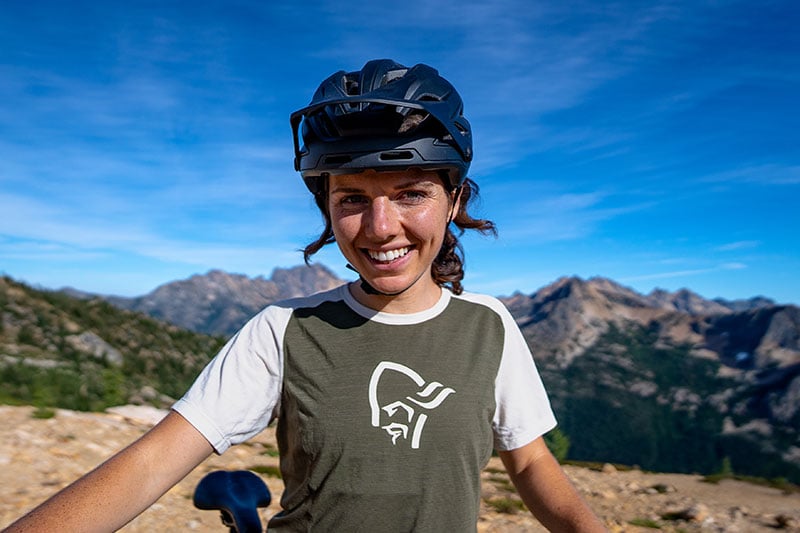
About the Reviewer
Name: Delilah Cupp
Age: 25
Height: 5'1½"
Weight: 120 lbs
Size Reviewed: Small
Riding Style: Lil bit of everything, not too much of anything.
2023 Juliana Furtado Geometry
| Size | XS (Lo /Hi) | S (Lo/Hi) | M (Lo/Hi) |
| Reach (mm) | 410 / 406 | 434 / 431 | 459 / 456 |
| Stack (mm) | 599 / 601 | 608 / 610 | 622 / 624 |
| Head Tube Angle (°) | 65.2 / 64.9 | 65.2 / 64.9 | 65.2 / 64.9 |
| Seat Tube Length (mm) | 370 | 380 | 405 |
| Bottom Bracket Height (mm) | 338 / 335 | 338 / 335 | 338 / 334 |
| Bottom Bracket Drop (mm) | 35 / 38 | 35 / 38 | 35 / 38 |
| Wheelbase (mm) | 1147 / 1147 | 1178 / 1178 | 1212 / 1213 |
| Chainstay Length (mm) | 428 / 429 | 430 / 431 | 433 / 434 |
| Head Tube Length (mm) | 90 | 100 | 115 |
| Top Tube Length (mm) | 544 / 544 | 570 / 571 | 598 / 599 |
| Seat Tube Angle (°) | 77.4 / 75.9 | 77.4 / 77.1 | 77.4 / 77.1 |
| Standover (mm) | 694 / 688 | 703 / 698 | 706 / 700 |
